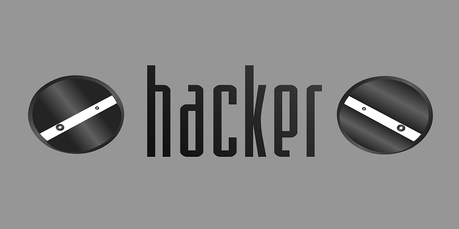As a blogger, the value of your business stems from the information that you post online, and the database of readers that you build up. If these things are compromised, you can lose a lot of money, not to mention have all that precious time and energy you spent go straight down the drain.
As a result, like any other types of entrepreneur, it is very necessary for all bloggers to go about protecting their ventures from being hacked, particularly in this digital age when cybercriminals keep finding newer and more sophisticated ways to gain access to systems.

If you don't have an I.T. person or firm on hand to handle security for you, you must take proper precautions yourself to keep your data protected from viruses, spyware, malware threats, ransomware, scams and more.
Read on for some top tips you can follow today to keep hackers out of your systems and your blogging business secure.

Here is a list of ways to protect your blog form hackers in 2017
1) Install Security Software and Use Firewalls
One of the most important things you can do to protect your blog is install security software on your computers. Make sure the product you buy is comprehensive though. You should find an option that includes protection against spyware, viruses, spam, and malware, as well as ransomware protection, as this is a fast-growing hacking technique.
Good-quality security software will work to stop cybercriminals from getting access to your blog's data, shutting down your systems, or holding your information hostage. The best options are those which specify that they maintain user privacy; block potentially dangerous attachments, emails, and websites; keep online information (such as credit card information and logins) safe; and keep you protected from data- and identity-stealing applications.
Firewalls are another important line of defense. They act as the first barrier against hackers, and are designed to filter out threats from the various types of secure and credible information that come in via the internet when you're browsing online or downloading data.
Check your computers and you may find that you already have firewalls installed. However, take a close look at the settings on your devices to ensure that these have actually been activated, as this may not have been done already by the manufacturer. For more comprehensive protection, you might also decide to update to a third-party firewall.
2) Keep Systems Updated
Next, you will keep your blog safer from prying eyes if you take the time to update your computers on a regular basis. After all, development companies refine their products constantly, and work hard to plug any potential security holes that can pop up over time. As such, products aren't static and must be updated to the most recent version in order to be as secure as possible.
It is wise to set up your computers so that they automatically update whenever new releases become available for things like operating systems, browsers, plugins, software, and the like. At the very least, if you don't want to make it automatic, you should have alerts in place so that you get a notification whenever an update is released.
3) Use Hard-to-Hack Passwords
While it may sound obvious, many bloggers end up having their sites hacked simply because they don't use proper passwords on their blogs, computers, modems, or various other websites and programs. One of the most basic strategies you can implement then is to only ever use comprehensive passwords.
When selecting passwords, make sure yours are at least eight characters in length, and made up of a combination of upper and lower-case letters, plus some symbols and numbers. Be wary of using passwords that are made up of any information that hackers could guess from information that's publicly available (e.g., posted on your blog or social media pages) such as your birth date, address, names of your loved ones or pets, home town, and so on.
It is also best to update your passwords regularly if you want to stay safe (generally every eight to 12 weeks is recommended); and to use different passwords across the various computers and logins you use, so that if one gets compromised hackers won't be able to break into everything.
4) Back Up Regularly
Lastly, don't forget to back up your blog often. This way, if the worst does happen, you will still have access to all those words you have written and the list of readers you have built up over time. You should back up on-site and off-site, multiple times a day, and if possible set things up so that an automatic backup occurs every time you or another authorized administrator of your blog saves a file.
While you can do manual backups yourself, you'll also find that many blog and hosting programs have options available that you can pay for so that regularity and peace of mind are ensured.
Over to You
Did you like these top 4 tips for keeping your blog safe from hackers in 2017. What are your favorite ways to secure your blog from hackers share it in the comments below !



